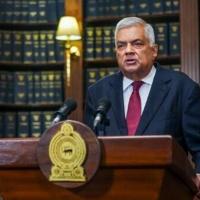Sri Lanka’s upcoming presidential elections in September will be the first since a severe economic crisis caused widespread unrest, according to the election commission’s announcement on Friday.
These elections will gauge the public sentiment following the peak of the 2022 economic downturn, which led to shortages of food, fuel, and medicine across the country.
President Ranil Wickremesinghe, 75, who assumed office after protests ousted his predecessor, has indicated his intention to run for re-election.
He is expected to face competition from at least two opponents who are criticizing the austerity measures imposed by his government to comply with an IMF bailout package.
The campaign period, set by the election commission, will culminate in a vote on September 21 in a country still grappling with a fragile economic recovery and persistent discontent over cost of living challenges.
The focus of the campaign is likely to be on economic issues as the country emerges from its worst recession in 2022, with a record 7.8% GDP contraction.
Inflation has since normalized from its peak of 70% during the crisis.
Wickremesinghe has managed to restructure Sri Lanka’s $46 billion foreign debt with the support of bilateral lenders, including China, following a government default in 2022.
However, his fiscal policies, including tax hikes and subsidy reductions, have been widely unpopular due to the financial burden they have placed on the public.
While the shortages experienced during the peak of the crisis are now a distant memory, many Sri Lankans continue to struggle with the aftermath of Wickremesinghe’s austerity measures.
Opposition parties have pledged to renegotiate the terms of the IMF bailout negotiated by Wickremesinghe last year.
The main challenger to the president is Sajith Premadasa, 57, who previously aligned with the ruling party and now leads the opposition.
Premadasa has promised to continue with economic reforms and IMF programs but has vowed to ease the tax burdens imposed by Wickremesinghe.
Another candidate in the race is Anura Kumara Dissanayake, 55, from a leftist party, campaigning against the privatization of state-owned enterprises.
The 2022 government default led to Wickremesinghe taking office after predecessor Gotabaya Rajapaksa fled amid protests.
Rajapaksa, accused of mismanaging the economy and triggering the crisis, temporarily left the country and resigned from Singapore.
Local elections scheduled for last year were postponed indefinitely due to lack of funding for a nationwide vote.
Over 17 million eligible voters over the age of 18 are expected to participate in the upcoming elections.
The election commission has allocated $33 million (10 billion rupees) for this year’s presidential election.





